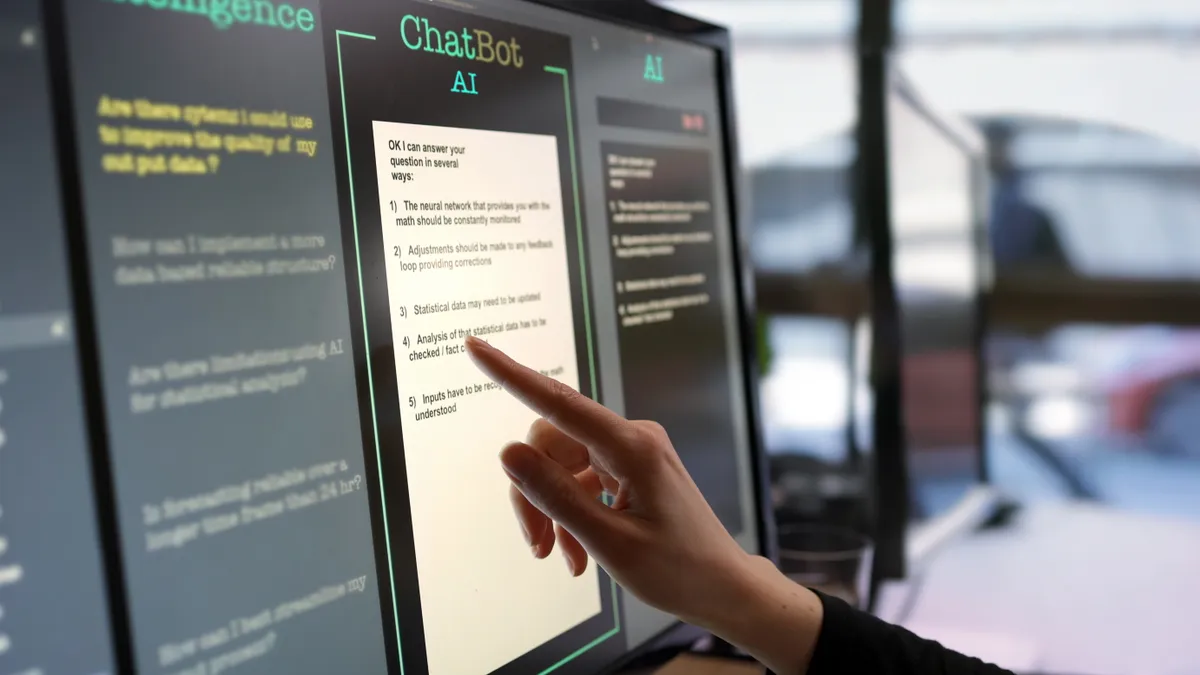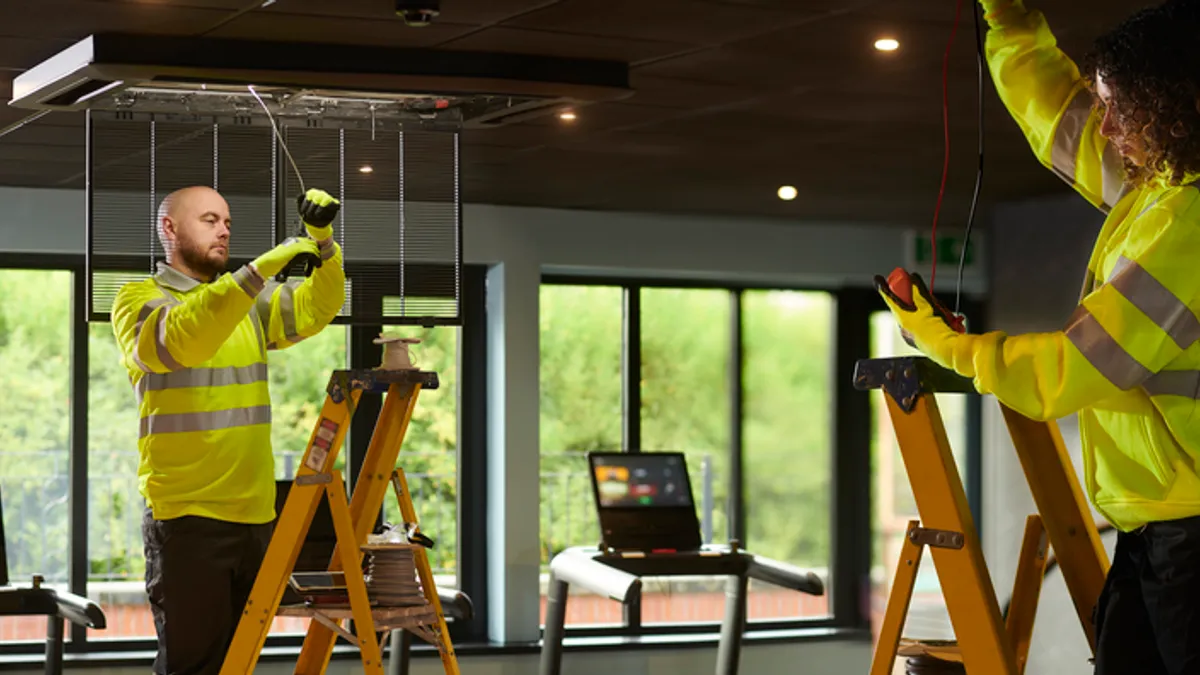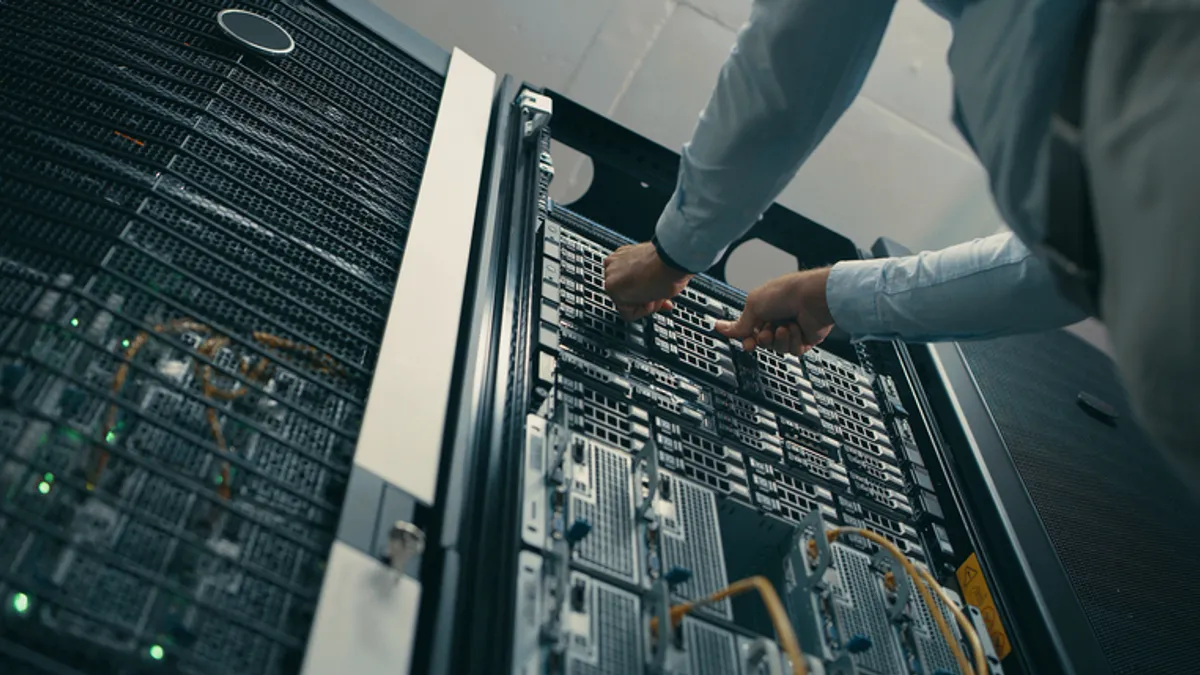Commercial real estate leaders expect AI-driven analytics, machine learning and generative AI to have a significant impact on the industry in the next three years, only behind clean energy solutions, according to a report from JLL, which surveyed 1,006 senior decision makers in May and June 2023.
JLL’s new AI-powered facilities management application, JLL Serve, integrates data from connected and non-connected assets in a user-friendly format that can provide technicians and facilities managers “everything they need to efficiently do their jobs,” the company said in a June 5 press release. The launch comes amid a growing adoption of AI across the facilities management and real estate industry, with JLL and other key players like CBRE and Cushman & Wakefield working to implement integrated facilities management systems that can leverage AI to boost decision-making and streamline operations.
To that end, the transition to integrated FM systems involves harnessing technology and data to make informed, proactive decisions about a building or a real estate portfolio’s operations by integrating various systems such as HVAC, lighting, security and occupancy sensors into a centralized platform, according to a report published by EY-Parthenon in March.
JLL Serve is powered by technology solution firm Sclera’s AI technology, which will help to drive productivity, compliance and decision-making through a single mobile and web-based application, JLL said. The real estate firm said Sclera’s technology supports the creation of a unified dataset of facilities portfolios, providing a centralized view of asset performance, maintenance needs and compliance requirements.
JLL’s first major foray into AI came last August with the release of JLL GPT, a generative AI chat tool that uses in-house data and external commercial real estate sources to provide insights to the firm’s workforce and clients. JLL says Serve is the next step in the organization’s ongoing effort to digitize and automate the end-to-end workflow in facilities management. The application accomplishes this by aggregating and processing disparate data sources that can then be cleaned and used to provide actionable insights, while fitting into the firm’s broader technology ecosystem, JLL says.
“By leveraging Sclera’s technology, Serve enhances operational excellence, compliance, cost savings and employee experience,” according to Robbie Hobbs, chief product officer of Work Dynamics Technology at JLL. Hobbs noted that as the “world of work is always changing” and that the partnership with Sclera enables its clients to adapt to desired outcomes.
Connecting building- and asset-level systems allows real-time monitoring, analysis and control of facilities, enabling facilities managers to quickly address changing conditions and optimize resource allocation, according to EY, which noted that such data and technologies are required to monitor, report and comply with recent regulatory ESG requirements.
While integrating AI into operations and transitioning to IFM requires extensive resources and a commitment to changing work models, these investments and corresponding technology adoption are already underway in the commercial real estate sector. JLL and its competitors, CBRE and Cushman & Wakefield are working to provide integrated facilities management capabilities by integrating AI technology across their operations.
CBRE’s Smart Facilities Management Solutions, for example, uses its AI-based Nexus platform to deliver insights and optimize workflows. These solutions are already being used at more than 20,000 client sites worldwide, the firm announced in September. Last year, CBRE also rolled out a self-service AI playground that enables teams to query real estate documents and generate content.
CBRE has additionally partnered with Amazon Web Services Prototyping business to develop a digital environment that allows clients to utilize natural language prompts, using tools like Amazon Bedrock and Lambda. The result is a scalable prototype that enables its clients to review core metrics and reports on occupancy, rent and energy usage, helping CBRE enhance its business offerings and extend its leadership in the market, according to a May 30 blog post by AWS and CBRE.
As the company adds capabilities to the platform, it is tracking analytics to measure platform usage, costs and efficiency gains to help strategize the continued rollout and other AI investments, Sandeep Davé, chief digital and technology officer at CBRE, told CIO Dive.
Meanwhile, Cushman & Wakefield is taking a collaborative approach to its AI initiative, which it announced launching in November. Since then, the company has deepened partnerships with its tech vendors, rolled out generative AI-powered assistants and started to build out tools with a proprietary dataset, Sal Companieh, chief digital and information officer at Cushman & Wakefield, told CIO Dive.
Cushman & Wakefield partnered with Microsoft to deploy Azure OpenAI Service and Copilot for Microsoft 365 across its systems. The company also announced its participation in the MIT Working Group on Generative AI and the Work of the Future study. Led by the Massachusetts Institute of Technology, the working group comprises 25 companies and nonprofits, alongside MIT faculty and students, that will conduct research on early use cases of generative AI over the next two years, Cushman & Wakefield said in an April 8 news release.





















